Cloud Security and Data Residency: What GCC Businesses Need to Insist Upon in Accounting ERP
In the Gulf Co-operation Council (GCC), the narrative of enterprise resource planning (ERP) has undergone a seismic change. Previously, companies considered ERP software for its usability, automations, and reporting speeds. Now, two terms headline every boardroom deliberation: cloud security and data residency.
Stakes are at large. Digital-first GCC economies see national visions, like Saudi Vision 2030 and the UAE’s Digital Government Strategy, compelling businesses to adopt cloud technologies. Meanwhile, authorities have reinforced data governance requirements to protect sensitive financial and personal data. For businesses, particularly those that count on accounting ERP, the change is more than just an IT issue;, it is an issue of compliance, resiliency, and competitive trust.
ERP in the cloud holds out the promise of flexibility, scalability, and cost reduction. But without robust security and local data residency, these gains can easily come undone. One breach can cost millions of dollars, damage reputation, and invite regulatory fines. In the GCC region, where trans-border activity is rife, companies need to reconcile global access with local regulation parameters.
This blog discusses how cloud security and data residency are now unquestionable for accounting ERP in the GCC region. It defines the regulatory environment, identifies risks of doing nothing, and demonstrates how future-proof solutions such as HostBooks Enterprise integrate compliance with innovation.
Why Security and Residency Now Drive ERP Decisions
Accounting ERP has evolved far beyond traditional bookkeeping. Modern platforms unify invoicing, tax compliance, payroll, procurement, and even supply chain data into one system. That makes them a treasure trove for cybercriminals and a focal point for regulators.
Increasing Cyber Threats Facing GCC ERP Systems
Recent years saw stepped-up targeted attacks against the region’s business and financial infrastructure. From oil & gas industry ransomware to banking phishing, those attacking recognize ERP data’s economic value. For accounting ERP–facing businesses, that means every invoice, every ledger, every compliance report is a potential breach point.
Local Laws Strengthening Data Residency Requirements
Saudi Arabian, UAE, and Qatari governments now mandate companies to safeguard information in addition to keeping it locally stored and processed. Data residency is no longer mandated by choice;, it’s a regulation. Your ERP vendor may be multinational, yet they will need to show that data hosting is in sync with national requirements.
Cloud Security: A Boardroom-Level Business Priority
Today, residency and cloud security are not the privileged domain of IT teams. CFOs, CEOs, and compliance officers are directly accountable. ERP security posture has become, for investors, partners, and regulators, among others, a marker of sustainability over the longer term.
ERP Adoption in GCC: Compliance First, Features Second
Simply stated, it is no longer acceptable for businesses in the GCC region to approach ERP adoption by comparing features. It’s now a decision based upon compliance first, and it is just too expensive to be wrong.
Cloud Security for Accounting ERP
When businesses in the GCC adopt cloud-based accounting ERP, they are essentially entrusting their most sensitive data, financial transactions, payroll, compliance filings, and supplier contracts to a vendor’s digital infrastructure. That means security is not a luxury; it’s the foundation of trust.
But cloud security is a multi-layer discipline. It encompasses not only data encryption but identity controls, regulatory certifications, and operating resiliency. Let’s decompose what companies need to look for:
Encryption of Data at Rest and in Transit
Sensitive accounting data must never be unencrypted and left on a server or transmitted through networks without encryption. State-of-the-art encryption, AES-256 for stored and TLS 1.2+ for data in transit, is the current worldwide standard. For GCC companies, it therefore means that even should systems are broken into, actual data is incomprehensible to those who should not read it.
Multi-Factor Authentication (MFA) and Access Control
Weak passwords or passwords that are stolen are often the point of entry for most breaches. ERP systems for accounting must implement multi-factor authentication, role-based access control, and conditional login policies. For example, finance managers at Riyadh or Dubai might require additional authorization levels before they can access high-value transactions. That keeps risks of insider fraud or hacked accounts to a minimum.
Continuous Threat Monitoring and Incident Response
An ERP that is secure is not only preventive, but it is also reactive. Real-time tracking of login activity, transfers of data, and user activity enables abnormalities to be identified in real time. Top vendors incorporate Security Information and Event Management (SIEM) software so that suspicious uploading of an invoice or bulky unauthorized export is followed up on before it is too late.
Compliance-Backed Certifications and Local Audits
For GCC companies, vendor security assertions need to be supported by third-party corroboration. Certifications such as ISO/IEC 27001, SOC 2, and GDPR preparation indicate compliance with global best practices. But above and beyond international standards, companies need to check if the ERP vendor has undergone local audits that Saudi or UAE authorities mandated.
Business Continuity and Disaster Recovery Capabilities
Cyberattacks, hardware failures, or even local disruptions need not stop financial operations. Secure accounting ERP systems offer automatic backups, geo-redundancy, and recovery assurances (RTO and RPO commitments). That way, even in the worst scenario, payroll runs, bills are issued, and regulatory reporting is submitted within deadlines.
Why Cloud Security Matters for GCC Businesses
In the GCC, companies are doing business in extremely competitive, rapidly regulated markets. Having a data breach is not just losing dollars;, it jeopardizes trust by regulators, investors, and business partners. For multinational subsidiaries, government-linked, and family-owned conglomerates, ERP security is reputation protection, period. It’s compliance.
The lesson is clear: GCC businesses must treat cloud security as a baseline requirement when selecting an accounting ERP. Every feature, automation, analytics, and reporting come second to security because, without it, the ERP system cannot fulfill its purpose.
The Data Residency Requirement in GCC Countries
As they select an accounting ERP, GCC companies must look beyond the usual security controls and ask themselves: “Where does our financial data actually live?”
Central to all of that is the issue of data residency, the legal and physical storage and processing of data. For Saudi Arabian companies, UAE companies, and for much of the countries of the GCC, data residency is no longer only about technology. It is becoming about regulation and strategy.
Why Data Residency Matters
ERP accounting systems contain sensitive data, general ledgers, payroll information, vendor bills, tax returns, and purchasing agreements. If that data is maintained in outside GCC borders in offshore servers, then the following risks arise:
- Regulatory risk: The host country government may ban or fine the storage of sensitive business information offshore.
- Sovereignty issues: Hosting offshore can subject information to non-national jurisdictions and legal codes, minimizing local companies’ authority.
- Latency and reliability: Content stored in remote geographies can lead to slow access, interrupting real-time decision-making.
The GCC Regulatory Landscape
- Saudi Arabia: The government has made data localization mandatory for sensitive sectors such as banking, healthcare, and government projects. National Cybersecurity Authority (NCA) and SDAIA (Saudi Data & AI Authority) maintain cloud and data residency policy compliance.
- UAE: Though cloud use is heavily recommended, some industries must adhere to the Dubai Electronic Security Center (DESC) and the Abu Dhabi Digital Authority (ADDA), which stress sensitive data residency at national borders.
- Qatar, Kuwait, Bahrain, Oman: All of them have formulated regimes of favoring or mandating local storage of financial and government-related data.
For accounting ERP users, that means choosing a vendor that has local country data centers or GCC is no longer voluntary, it is mandatory.
Business Continuity Advantage of Local Hosting
Aside from compliance, local hosting enhances performance and reliability. An ERP accounting solution that is hosted in Riyadh, Dubai, or Doha provides:
- Faster access to data for finance teams that require real-time visibility of transactions.
- Reduced risk of downtime by limiting exposure to foreign infrastructure.
- Greater trust from clients and regulators, who appreciate businesses that prioritize local data control.
Vendor Checklist for GCC Businesses
While comparing ERP software, firms must require:
- Proof of local data centers within the region of the GCC or country-specific.
- Crystal-clear data ownership agreements (the firm should own all the rights, not the vendor).
- Exit and migration provisions in case the business decides to change to another vendor.
- Local support teams with knowledge of GCC compliance structures.
Strategic Advantage of Data Residency for GCC Companies
Data-residency-aware businesses are not only compliant businesses, they are also agile businesses. Eliminating latency and questions of sovereignty, they can quickly scale operations, expand seamlessly beyond the shores of the GCC, and command greater credibility from investors and regulators alike.
Major Features That Accounting ERP in GCC Businesses Should Have
Choosing an accounting ERP is no longer just about ledger handling and automating payroll. In the Gulf region of the GCC, the regulations are fast-changing and the competitive environment is getting finer, firms must look for something beyond bookkeeping capabilities. The ERP needs to be a compliance enforcer, decision accelerator, and facilitator of scalability.
These are the capabilities that genuinely count for GCC-based businesses in 2025:
Real-Time Financial Visibility
GCC decision-makers cannot afford to wait for month-end reconciliations. Real-time financial dashboards give CFOs and finance teams real-time visibility into cash flows, receivables, payables, and profit margins.
Why it matters in the GCC: Companies sometimes operate in more than one city or country. Real-time visibility keeps cross-border operations in sync.
Automated Compliance
ERP accounting must be preconfigured with compliance modules for the regulations of the GCC. That means:
- Natively embedded e-invoice formats that comply with Saudi ZATCA Phase 2.
- Automated payroll to comply with GOSI (Saudi) and WPS (UAE) requirements.
- Local tax rule engines that automatically update when regulations change.
By automating compliance, companies reduce the requirement for repeated manual changes and fines.
Artificial Intelligence-Driven Forecasting
Modern ERP systems must move beyond historical reporting. Predictive AI models should forecast cash flow risks, seasonal demand spikes, and inventory gaps.
Why it matters in the GCC: Retailers and distributors must prepare for seasonal peaks like Ramadan or the influx of tourists in Dubai. Predictive software can anticipate stockouts or overstocking.
Multi-Currency and Multi-Language Support
Doing business in the GCC is like handling many currencies (SAR, AED, QAR, OMR, BHD, KWD) and languages (largely Arabic and English). An ERP of accounting should handle effortlessly:
- Real-time currency conversions.
- Arabic language bills and statements that comply with regulations.
- Group reporting for companies that do business in more than one GCC country.
Secure Cloud Infrastructure
Apart from common controls such as encryption and access control, ERP vendors should guarantee local data centers in GCC territories (as emphasized in Section 3). Cloud infrastructure must be certified to standards such as ISO 27001 and SOC 2.
Industry-Specific Modules
One ERP that fits all is seldom successful in the UAE. Rather, the system needs to provide industry-matched modules, including:
- Hospitality: Guest charging, loyalty programs, and cost control of F&B.
- Retail: POS integration for omni-channels, inventory synchronization, promotion management.
- Manufacturing: Production planning, tracking of lots, procurement automation.
- Construction: Project cost tracking, subcontractor management, progress billing.
Smooth Integration with the Business Ecosystem
GCC companies already have mixed use of systems: banks, payment gateways, e-commerce platforms, and HR software. Future-ready ERP needs to interoperate with:
- Banking institutions (Riyadh Bank, Emirates NBD, Qatar National Bank, et al.)
- Online shopping websites (Amazon, Shopify, Noon)
- Payroll processors and government reporting systems
Scalability and Flexibility
Lastly, ERP systems need to scale with the business. Whether it is going into additional new GCC countries or putting additional product lines in, the ERP needs to scale without wholesale restructuring. Cloud-native architecture allows for that scaling without over-the-top expense.
Why HostBooks is Unique to GCC Companies
Amid the growing landscape of ERP providers, many platforms promise digital transformation but stop short of delivering the localized, intelligent, and future-ready solutions that GCC businesses truly need. HostBooks Enterprise bridges this gap with a cloud-first, AI-powered ERP system designed for scale, compliance, and real-time decision-making.
Agential AI at the Core
All ERP software offers dashboards. HostBooks goes one step up by including Agentic AI, i.e., the system does not just display data, it also advises and even takes the best decision.
Example: If working capital is tightening, HostBooks can suggest optimizing procurement cycles or highlighting delayed receivables.
Rather than reactive reporting, decision-makers and CFOs receive proactive operative intelligence.
End-to-End Real-Time Monitoring
HostBooks provides single visibility for:
- Finance and accounting
- Inventory and purchasing
- HR and payroll
- Compliance and audits
For GCC businesses, it translates into less siloing, less human intervention, and quicker response to shifting market conditions.
Predictive Insights for GCC-Specific Needs
Through its predictive intelligence, HostBooks helps businesses anticipate:
- Seasonal retailing booms during Ramadan and holidays.
- Inventory runs out ahead of peak tourist/trading seasons.
- Cash flow risks in multi-country operations across the GCC.
Simplifying Compliance
Whereas companies usually find it challenging to report GOSI/WPS payroll in Saudi Arabia and the UAE or ZATCA e-invoices in KSA, HostBooks facilitates these. Its constantly operating compliance engine ensures that reporting templates, filing needs, and labor law requirements are integrated into workflows, minimizing manual overhead and audit risk.
Scalability for Regional Footprint
HostBooks is built for companies that expand beyond borders. Multi-currency, multi-language, and multi-entity features enable a firm that has a presence in Riyadh, Dubai, and Doha to operate from one system seamlessly, yet never overlook local preparation for compliance.
Integration into Regional Ecosystems
HostBooks is integrated with GCC banks, payroll software, and leading e-commerce sites so that companies don’t require several standalone products. The ERP is the sole repository of truth for all operations.
The Bottom Line
HostBooks is more than software. It is assurance, assurance that financials are accurate, that decisions are well-informed, and that operations are future-oriented. For the GCC companies that peer into 2025 and beyond, HostBooks is not just an ERP option. It is an operations ally,powered by Agentic AI, that scales across industries and is region-centric for the regulatoryand business environment.

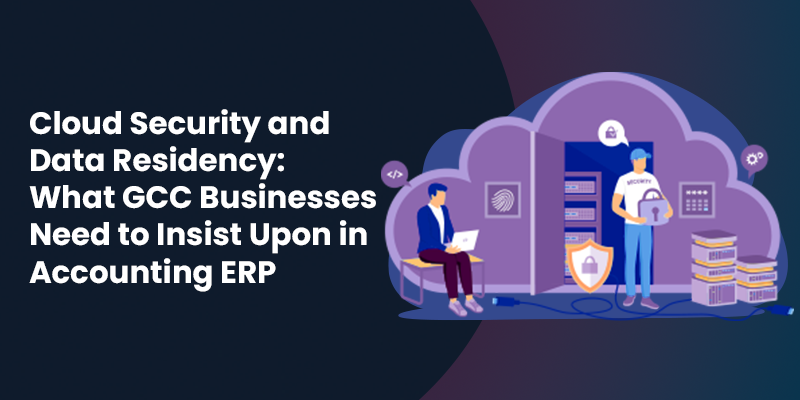
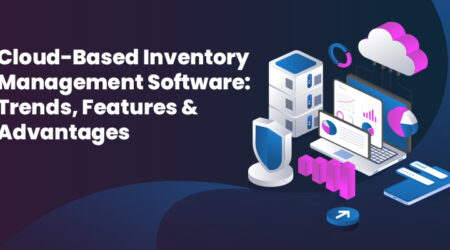
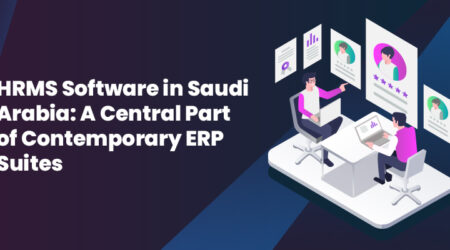
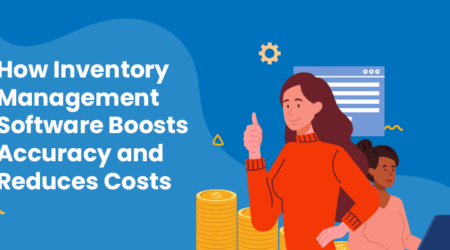

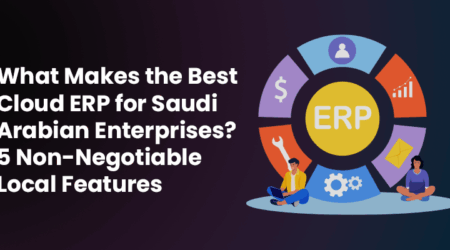
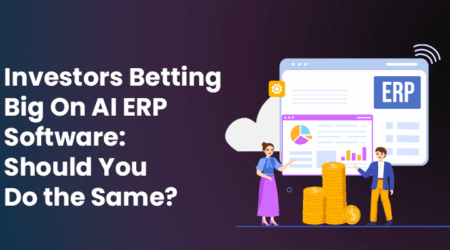
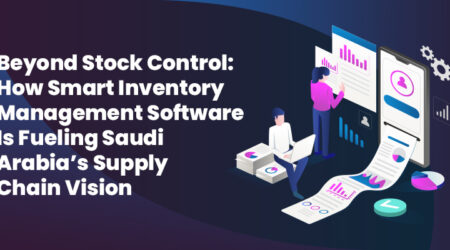
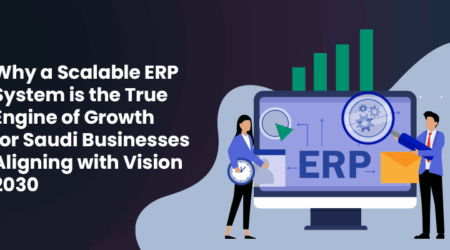
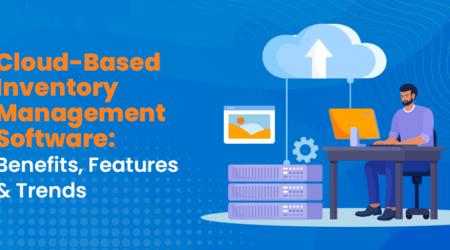
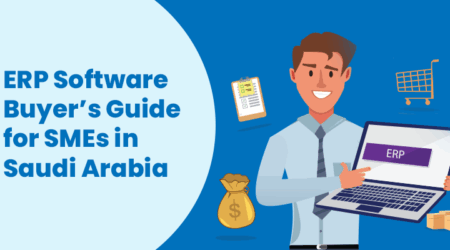
Leave a Reply